While Rottweilers typically very active and burn energy fairly easily, they can definitely become overweight. In the United Kingdom, there are have been several Rottweilers in the news for obesity, including one Rottweiler taken into the PDSA Pet Aid Hospital that weighed over 150 pounds. Unsure if your Rottie could stand to lose a few pounds? The following are 3 signs your Rottweiler is overweight.
How Much Should Rottweiler Weigh?
77 to 130 Lbs
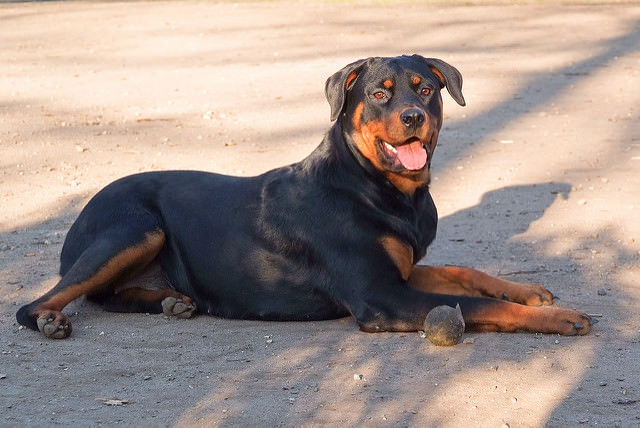
#1 – No Definition
Rottweilers should have a definite body shape. This includes a large chest and rib cage that slims down to a “waist” where his hips are. If your Rottie doesn’t have a waist, he is carrying around a couple extra pounds. Dr. Sophia Yin’s website has a great, easy to follow guide for checking this.
#2 – Hard Time Grooming Herself
Have you noticed that your Rottie is having a hard time licking or scratching herself? Being overly round can make it impossible for a dog to reach spots they should physically be able to for cleaning and scratching. If you’ve noticed your Rottie having trouble, it’s time to start a diet plan.
#3 – Trouble Getting Around
An overweight Rottweiler is not going to have the dexterity and athleticism the breed is known to possess. If your Rottie is having trouble getting on the couch, up and down the stairs, or has to stop and rest each block of your walk, she is definitely out of shape and probably overweight. This means that it’s time to see a vet and get your Rottie on a diet and exercise regime.
Frequently Ask Questions
Read on if you suspect your Rottweiler may be carrying excess weight. While they are not a breed that easily puts on the pounds, they can deal with a sedentary lifestyle or other extenuating circumstances. If you know how much your dog should weigh, what kind of food they should be eating, and the warning signs that your dog has a weight problem, you will have a better understanding of their needs. Learn more here to protect your dog’s health.
What Is The Ideal Weight For A Rottweiler?
The ideal weight for a male Rottweiler depends on many factors and ranges from 85 to 135 pounds. Female Rotties should weigh between 80 and 100 pounds.
To be a female, you should weigh between 80 and 100 pounds.
How Big Is A Full Grown Rottweiler?
Rottweilers range in height from 22 inches for a small female to 27 inches for a large male, making them slightly longer than tall, large dogs. The range of possible weights is from 80 to 135 pounds. When compared to other dog breeds, Rottweilers have enormous heads and bodies.
How Heavy Is The Biggest Rottweiler?
Males can grow to be over 130 pounds in weight and 27 inches tall at the shoulder, while females rarely reach those heights. The Roman Rottweiler is the largest breed of Rottweiler. In addition to having a commanding presence, dogs of this breed tend to be tall, measuring in at large or even extra-large proportions.
In their adulthood, Roman Rottweilers can reach the massive size of a giant dog. They are considered by many to be the largest dog breed in the world.
Male Roman Rottweilers typically reach a height of 23 1/2 to 30 inches at maturity. When compared to males, female Roman Rottweilers tend to be smaller. Height for these girls starts at 24 1/2 inches and goes all the way up to 29 inches for the really big females.
How Much Does A 1-Year-Old Rottweiler Weigh?
It takes Rottweilers longer than it does for many other breeds of dogs to achieve their full size since they are large-breed canines. Around one year, a Rottweiler will have reached their full height, and by the time they are two years old, they will have reached their full weight. It may take larger Rottweilers up to three full years to reach their final adult weight after they have finished growing into their bodies.
Is My Rottweiler Fat?
Even though it is not prevalent, your Rottie could be on the obese side. Clear indicators include no definition in their body, unable to itch themselves, and constant fatigue. Rottweilers are muscular dogs with lean bodies, but a sedentary lifestyle quickly translates to unhealthy weight.
Obese dogs tend to wheeze and move slowly, which are both evident signs that they are exhausted due to their condition. This suggests that he is out of shape and probably overweight. Keep in mind extreme weather can cause these issues too. If your dog has good form, then check the forecast first.
Male Rottweiler Weight & Size Chart By Age
The American Rottweiler Pinschers have a range of weights standard to their breed. Below the chart indicates the common weight for males starting at one-month-old with a range of acceptable limits for each age:
| Age | Weight |
| 1 month | 4 – 8 lbs |
| 2 months | 12 – 16 lbs |
| 3 months | 34 – 39 lbs |
| 4 months | 44 – 51 lbs |
| 5 months | 54 – 61 lbs |
| 6 months | 64 – 71 lbs |
| 7 months | 72 – 80 lbs |
| 8 months | 75 – 85 lbs |
| 9 months | 90 – 105 lbs |
| 10 months | 95 – 110 lbs |
| 11 months | 95 – 115 lbs |
| 12 monhts | 95 – 125 lbs |
| 18 months | 95 – 135 lbs |
| 24 months | 95 – 135 lbs |
Female Rottweiler Weight & Size Chart By Age
Female Rottweilers usually way less than their male counterparts starting from infancy. Read the chart below to see the weight variations by age:
| Age | Weight |
| 1 month | 3 – 6 lbs |
| 2 months | 10 – 14 lbs |
| 3 months | 30 – 35 lbs |
| 4 months | 35 – 42 lbs |
| 5 months | 45 – 55 lbs |
| 6 months | 59 – 64 lbs |
| 7 months | 65 – 70 lbs |
| 8 months | 70 – 75 lbs |
| 9 months | 70 – 80 lbs |
| 10 months | 75 – 85 lbs |
| 11 months | 75 – 90 lbs |
| 1 year | 80 – 95 lbs |
| 15 Months | 80 – 99 lbs |
| 16 Months | 80 – 100 lbs |
| 17 Months | 80 – 100 lbs |
| 18+ Months | 80 – 100 lbs |
How Much Does The Average American Rottweiler Weigh?
When fully grown, how much does a Rottweiler typically weigh? The average weight of a female American Rottweiler Pinscher ranges from 60 to 90 pounds, whereas the average weight of a male American Rottweiler Pinscher is from 75 to 100 pounds. The typical body weight of a male European Rottweiler ranges from 88 to 99 pounds (40-45 kg), whereas the typical body weight of a female European Rottweiler ranges from 71 to 77 pounds (31-35 kg) (32-35 kg).
What Is The Ideal Healthy Weight For A German Rottweiler?
The only difference between a German and an American Rottweiler is the country of birth. However, the German breed tends to have different mood characteristics, such as a calm personality and a sharp mind. As for weight, those are the same for both dogs as they are essentially the same dog.
You may get a good idea of the state of your dog’s health and happiness by determining whether or not they are overweight or underweight. If your Rottweiler satisfies all of these criteria, it is likely that he or she is at the appropriate weight for his or her breed:
How Can I Help My Overweight Rottweiler?
Eating an excessive amount of food and not moving around enough both lead to weight gain in humans and dogs alike. Start with a visit to your dog’s veterinarian to ensure no health complications are contributing to their weight. In addition to this, the veterinarian can evaluate their weight and assist in determining the most appropriate next step.
After that, cut back on the number of sweets your Rottweiler eats and the amount of kibble or wet food. Choose wet food over kibble as it has fewer carbohydrates and additives. Because it also helps dogs stay hydrated, it is a far better choice than other options for promoting a healthy weight and maintaining good body composition.
How Much Should A Rottweiler Eat A Day?
Plan to feed a Rottweiler puppy anywhere from 1 cup to 4 cups of dry dog food per day and up to 7 cups as they grow closer to full size. By adulthood, your Rottweiler will need between 4 cups to 7 cups of dry dog food per day. Senior dogs may require less depending on their exercise levels and abilities.
Are Rottweilers Prone To Obesity?
Because Rottweilers are prone to being overweight, it is important for pet parents to pay careful attention to the mealtimes and the amounts of food that their dogs consume. Daily calorie requirements for Rottweilers range between 1,600 and 2,300. The levels differ depending on many factors, such as if they are spayed or neutered, among other factors.
Like humans, overweight dogs are at risk for various serious medical issues, including greater vulnerability to deadly diseases and difficulties with mobility due to joint issues. Rottweilers that are overweight often have a tummy that hangs too low, a waist that is too wide, and ribs that are not defined. Usually, Rottweilers are lean and muscular, so any extra weight will show when they overindulge on the kibble, which they love to do!
Rottweilers have an insatiable appetite and enjoy playing or exercising. However, they also take great pleasure in cuddling up with their owners. Excess weight is a common result of inactivity and excessive eating. You should not get a Rottweiler unless you can commit to its high energy level and busy lifestyle.
Overweight Breed Informational Pages
- Is My Bulldog Overweight Or Obese?
- Is My Chihuahua Overweight Or Obese?
- Is My Corgi Overweight Or Obese?
- Is My Dachshund Overweight Or Obese?
- Is My Doberman Overweight Or Obese?
- Is My German Shepherd Overweight Or Obese?
- Is My King Charles Spaniel Overweight Or Obese?
- Is My Lab Overweight Or Obese?
- Is My Maltese Overweight Or Obese?
- Is My Pit Bull Overweight Or Obese?
- Is My Pomeranian Overweight Or Obese?
- Is My Rottweiler Overweight Or Obese?
- Is My Shih Tzu Overweight Or Obese?
- Best Joint Supplement for Dogs
- Best CBD Gummies for Dogs
- Goat's Milk for Dogs
- Skin & Coat Supplements for Dogs
- Weight Gain Supplements for Dogs
- Muscle Building Supplements for Dogs
- Heart Supplements for Dogs
- Multivitamins for Dogs
- Pill Pockets for Dogs
- Digestive Enzymes for Dogs
- Turmeric for Dogs
- Liver Supplements for Dogs
- Tear Stain Supplement for Dogs
- Breath Fresheners for Dogs
- Kidney, Urinary, & Bladder Supplements for Dogs
- Stool Eating Deterrent for Dogs
- Eye Supplements for Dogs
- Melatonin for Dogs
- Apple Cider Vinegar for Dogs
- Green Lipped Mussels for Dogs
- L Theanine for Dogs
- Chondroitin Supplements for Dogs
- MSM for Dogs
- Valerian Root for Dogs
- Chamomile for Dogs
- Boswellia for Dogs
- L Tryptophan for Dogs
- Yucca for Dogs
- Licorice Root for Dogs
- Bromelain for Dogs
- Papain for Dogs
- Devil's Claw for Dogs
- Quercetin for Dogs
- Hemp gummy for dogs
- Best Hemp Dog Treats
- Best Hemp Oil for Dogs
- Best Calming Treats, Chews, & Supplements for Dogs
- Best Bone Broth for Dogs
- Best Fish Oil for Dogs
- Best Probiotics for Dogs
- Best Hip Dysplasia Supplements for Dogs
- Best Colostrum for Dogs
- Best Quercetin for Dogs
- Best Greens for Dogs Supplements
- Best Vitamin C Supplements for Dogs
- Best Probiotic for Dog with Allergies
- Best Taurine Supplements for Dogs
- Best Dog Food Toppers
- Best Anal Gland Supplement for Dogs
- Best Dog Probiotic Powder
- Best CoQ10 Supplement for Dogs
- Best Liquid Glucosamine for Dogs
- Best Wrinkle Creams, Balms, and Wipes for Dogs
- Best Puppy Calming Treats
- Best Colloidal Silver for Dogs
- Best Adaptogen Supplements for Dogs
- Best Cognitive Supplements for Dogs
- Best Bee Pollen for Dogs
- Best Vitamin A Supplements for Dogs
- Best Vitamin E Supplements for
- Best Liquid Glucosamine Supplements for Dogs
- Best SAM-e Supplements for Dogs
- Best Hyaluronic Acid Supplements for Dogs
- Best Apple Cider Vinegar Supplements for Dogs
- Best Diarrhea Medicine for Dogs
- Best Milk Thistle for Dogs
- Best Turkey Tail Mushroom Supplements for Dogs
- Best Astaxanthin Supplements for Dogs
- Best Lutein Supplements for Dogs
- Best Electrolyte Supplements for Dogs
- Best Coconut Oil for Dogs
- Best Prenatal Vitamins for Dogs
- Best Puppy Milk Replacements
- Best Iron Supplements for Dogs
- Best Dewormer Products for Dogs
- Best Mange Medications for Dogs
- Best Cough Relief Products for Dogs
- Best Sinus Relief Products for Dogs
- Best Collapsed Trachea Supplements for Dogs
- Best Fireworks Anxiety Relief Products for Dogs
- Best Thunderstorm Anxiety Relief Products for Dogs
- Best Travel Anxiety Relief Product for Dogs
- Best Supplements for a Dog with a Torn ACL
- Best Supplements for a Dog with Patellar Luxation
- Best Supplements for a Dog with Intervertebral Disc Disease
- Best Zinc Supplements for Dogs
- Best Biotin Supplements for Dogs
- Best Tart Cherry Supplements for Dogs
- Best Resveratrol Supplements for Dogs
- Best Ginkgo Biloba Supplements for Dogs
- Best Ashwagandha Supplements for Dogs
- Best Supplements for Dogs with Cushing's Disease
- Best Adrenal Supplements for Dogs
- Best NAD+ Supplements for Dogs
- Best NMN Supplements for Dogs
- Best Supplements for Dogs with Dementia
- Best Supplements for Dogs with CCD(Canine Cognitive Dysfunction)
- Best Fiber Supplements for Dogs
- Best Spirulina for Dogs
- Best Hairball Remedies for Dogs
- Best Eye Drops for Dogs with Allergies
- Best Magnesium Supplements for Dogs
- Best Brushes for Double-Coated Dogs
- Best Dandelion Root Supplements for Dogs
- Best Probiotic for Dogs with Yeast Infections
- Best Flaxseed Oil for Dogs
- Best Chamomile Supplements for Dogs
- Best Lavender Supplements. Treats & Sprays for Dogs
- Best Collagen Supplements for Dogs
- Best Kelp Supplements for Dogs
- Best Activated Charcoal for Dogs
- Best Slippery Elm Supplements for Dogs
- Best Supplements for Dogs with Seizures & Epilepsy
- Best Antioxidant Supplements for Dogs
- Best Ubiquinol Supplements for Dogs
- Best Hormone & Glandular Supplements for Dogs
- Best Thyroid Supplements for Dogs
- Best Iodine Supplements for Dogs
- Best Dog Shedding Supplements for Dogs
- Best Detox Supplements for Dogs
- Best Postbiotics for Dogs
- Best Aspirin Products for Dogs
- Best Dog Anti-Nausea Products
- Best Dog Mouthwashes
- Best Camelina Oils for Dogs
- Best Hemp Seed Oils for Dogs
- Best Natural Anti-Inflammatories for Dogs
- Best Cancer Supplements for Dogs
- Best Sardine & Anchovy Oils for Dogs
- Best Fatty Acid Supplements for Dogs
- Best Chia Seed Supplements & Treats for Dogs
- Best Olive Oils for Dogs
- Best Amino Acid Supplements for Dogs
- Best Moringa Supplements for Dogs
- Best Echinacea Supplements for Dogs
- Best Cranberry Supplements for Dogs
- Best D-Mannose Supplements for Dogs
- Best Nettle Leaf Supplements for Dogs
- Best Marshmallow Root Supplements for Dogs
- Best Astragalus Supplements for Dogs
- Best Pumpkin Seed Supplement for Dogs
- Best Supplements for a Dog Wetting The Bed
- Best Blueberry Supplement for Dogs
- Best Bromelain Supplements for Dogs
- Best Yucca Supplements for Dogs
- Best Ginger Supplements for Dogs
- Best Rosehip Supplements for Dogs
- Best Allergy Medicines for Dogs
- Best Reishi Mushroom Supplement for Dogs
- Best Maitake Mushroom Supplement for Dogs
- Best Chaga Mushroom Supplement for Dogs
- Best Shiitake Mushroom Supplement for Dogs
- Best Cordyceps Mushroom Supplement for Dogs
- Best Lion's Maine Supplement for Dogs
- Have question? - Ask in our Dog Health Forum

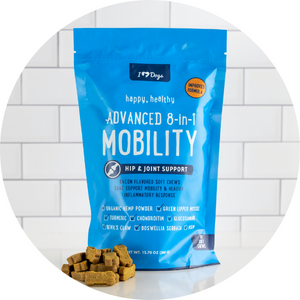
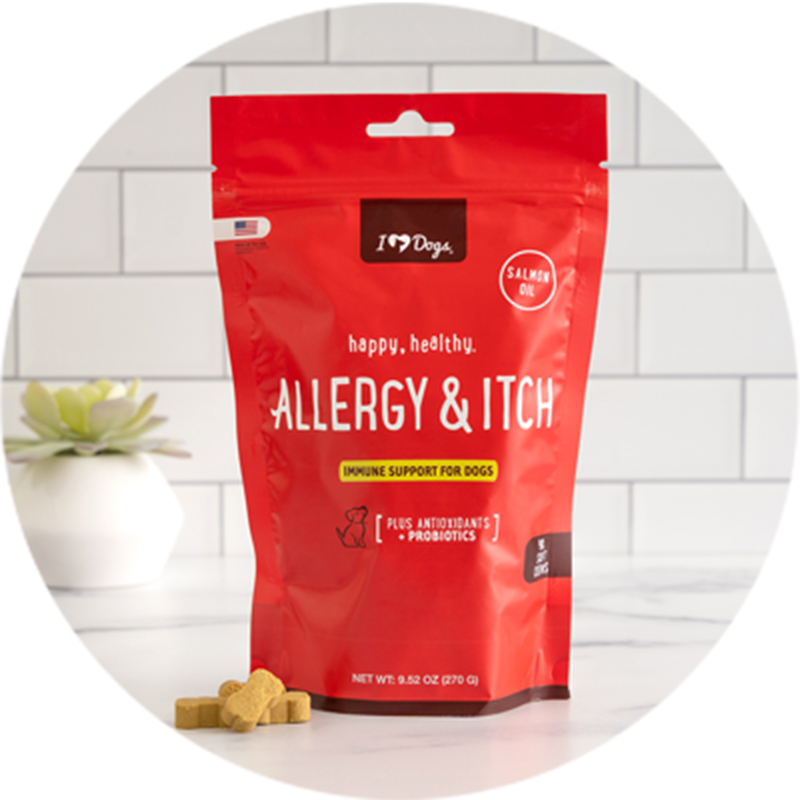
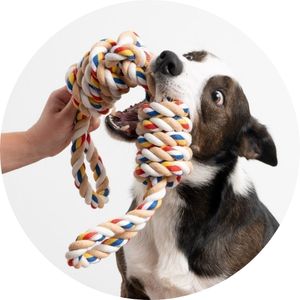
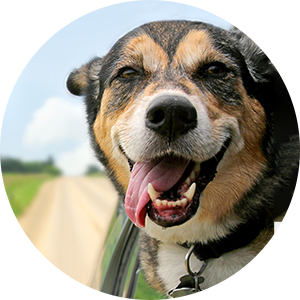
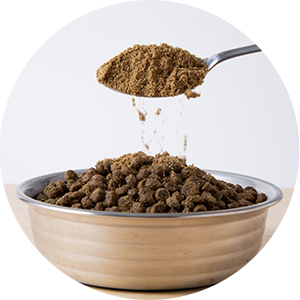
 Toledo, United States.
Toledo, United States.